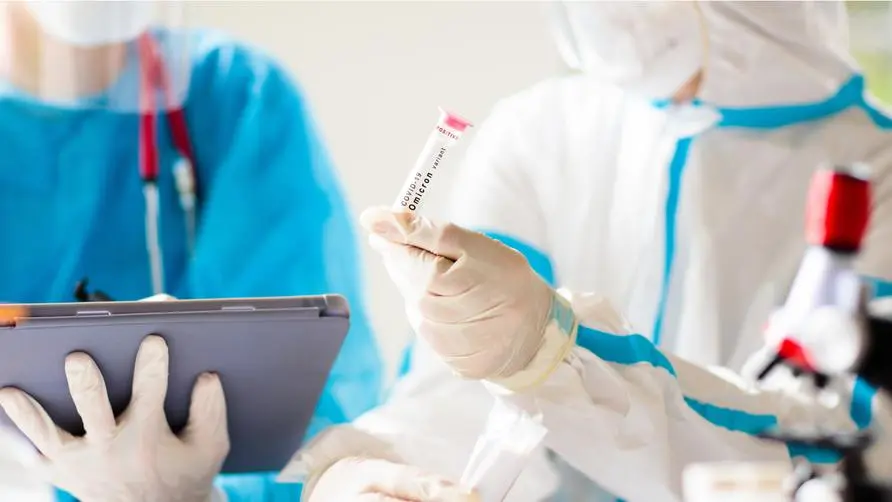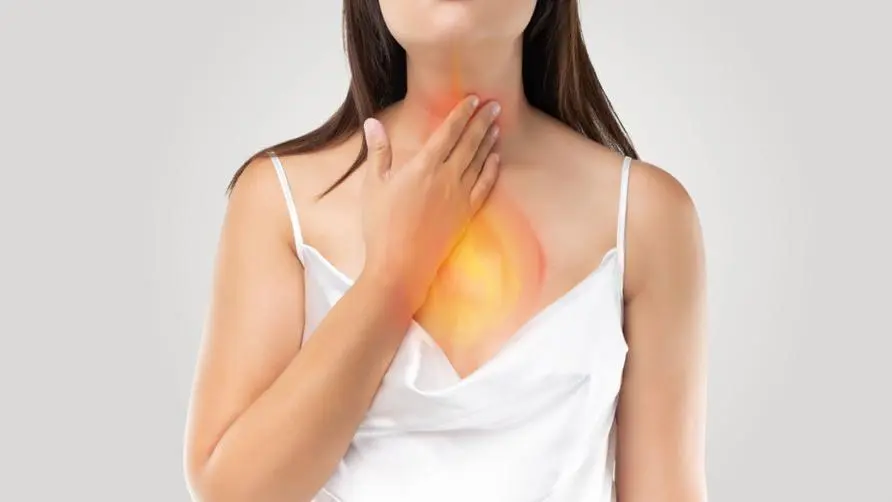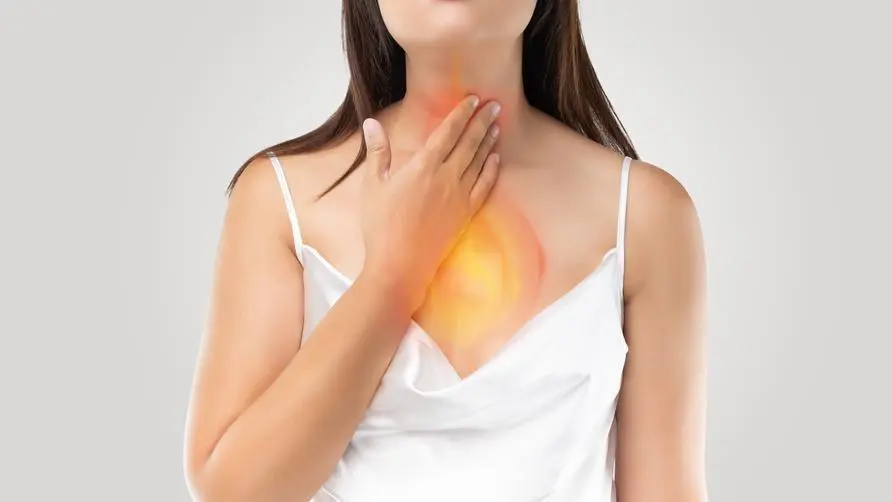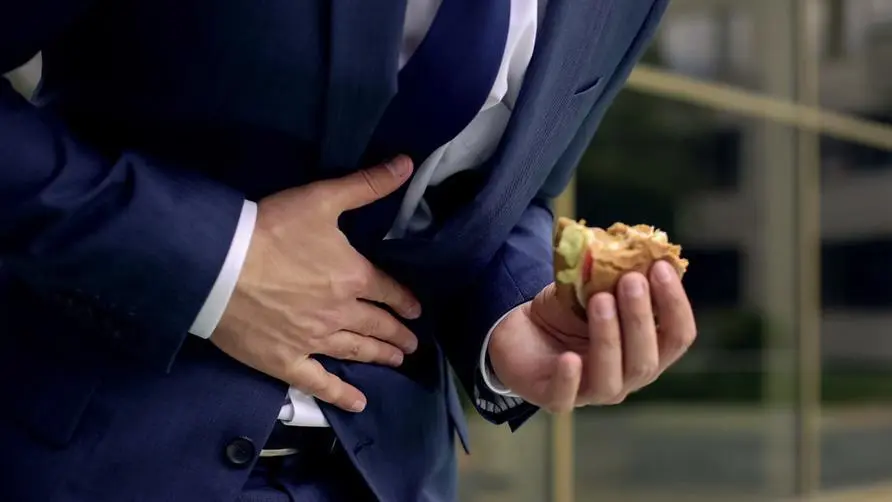What are the symptoms of gastroesophageal reflux? How to treat it? Is it helpful to take stomach medicine? "Group 2 foods" to avoid
Interviewed expert/Dr. Wu Wenjie (Director of the Gastroesophageal Reflux Center of Yuanrong Hospital)
What is gastroesophageal reflux?
Gastroesophageal reflux is the backflow of food, acid, gas, or liquid from the stomach into the esophagus. Most people occasionally experience reverse flow. Patients diagnosed with gastroesophageal reflux disease may experience reflux 3 to 40 times a day, which affects their quality of life and makes them unable to work or sleep. Generally speaking, frequent reflux and impact on life are indicators of gastroesophageal reflux.
What is the incidence of gastroesophageal reflux?
According to the gastroesophageal reflux questionnaire data, the proportion of gastroesophageal reflux symptoms in Taiwan is about 1/4. The proportion that reaches the level of esophageal inflammation is about 15%, which is a digestive tract disease with a high incidence and a continuing upward trend.
Gastroesophageal reflux that truly meets the diagnostic criteria can be divided into two categories: “eating and lifestyle habits” and “abnormal organ structure”. Gastroesophageal reflux occurring under the age of 40 is mostly related to eating habits, such as eating high-fat or big fish and meat. Over the age of 60, it is mostly related to structural abnormalities, such as diaphragm hernia, cardia laxity and other reasons that cause reflux. Although there is no statistical difference in gender, clinically, the proportion of men seems to be slightly higher than that of women.
What are the symptoms of gastroesophageal reflux?
Typical symptoms of gastroesophageal reflux are chest pain, stuffiness, burning, gastric reflux and reflux, and the feeling that things are flowing back into the throat and mouth. If chest tightness and gastric reflux symptoms occur at the same time, it is most likely related to gastroesophageal reflux.
Atypical symptoms include a lump in the throat due to laryngeal reflux, frequent phlegm clearing, throat clearing, a feeling of being choked, involuntary coughing when reflux occurs, and choking or coughing due to reflux when lying down to sleep. A few patients may experience palpitations and tinnitus. To determine whether a cough at night is related to gastroesophageal reflux, you can raise the pillow while sleeping. If the cough improves, it may be a cough caused by gastric reflux.
High-risk groups for gastroesophageal reflux
The primary risk factor for gastroesophageal reflux is obesity, especially in people with central (abdominal) obesity, which can easily cause abdominal pressure, causing compression of the stomach and causing acid reflux. In addition, pregnant women, those who like to wear tights or body-shaping clothes, those who have undergone gastric bypass or gastric surgery, office workers who are sedentary and have poor gastrointestinal motility, people who have high pressure in life, are prone to indigestion, and do not eat regularly and quantitatively, are also Easily cause gastroesophageal reflux attacks.
Clinically, it can be found that occupations related to this type of lifestyle, such as drivers, hairstylists, entertainers, and media employees, have a higher probability of gastroesophageal reflux.
Is gastroesophageal reflux related to diet? What foods should be avoided?
There are two major categories of dietary causes that can affect gastroesophageal reflux. The first category is foods that easily cause relaxation of the esophagus and cardia, including high-fat foods, fried foods, mint, chocolate, caffeine, tea, and cigarettes. The second category is foods that slow down gastric digestion and cause stress or flatulence, such as high-fat foods, big fish and meat, etc.
In addition, beverage liquids with bubbles, such as sparkling water and carbonated drinks, will also cause the stomach to swell. If you already have gastroesophageal reflux problems, you should reduce your intake of acidic foods, such as lemons, pineapples, kiwis, etc., to avoid aggravating reflux and causing acidic substances to irritate the esophagus and cause more serious discomfort.
What are the sequelae of gastroesophageal reflux? Recurring cancer risk?
Early or mild gastroesophageal reflux does not necessarily cause esophageal inflammation. However, once there are too many refluxes and the esophagus is inflamed for a long time without treatment, gastric acid may corrode the esophageal epidermis and cause esophageal mucosal lesions, which is called “Barrett’s esophageal lesions” and will cause permanent structural changes.
If the length of esophageal lesions is greater than 3 cm or is highly poorly differentiated, the risk of esophageal cancer will increase. Statistics have found that for highly differentiated esophageal lesions, the risk of developing esophageal cancer is approximately 7% per year. It is recommended that these patients undergo endoscopic surgery as early as possible to reduce the possibility of esophageal cancer. This treatment is currently covered by health insurance.
What is the treatment for gastroesophageal reflux? How to choose drugs and surgery?
For patients with gastroesophageal reflux, if the structure of their digestive tract is normal, they can be improved through dietary control and do not need long-term medication. The effect of drugs used by these patients is mainly auxiliary, such as reducing the irritation of gastric acid, avoiding esophageal damage, or shortening the time for esophageal repair. Getting used to taking medication to relieve symptoms is not the fundamental solution.
If gastroesophageal reflux is related to structural abnormalities, such as cardiac laxity, diaphragmatic hernia, slow gastric emptying, etc., improving diet and rest can help but cannot completely solve the problem. Long-term medication is required to improve symptoms and reduce inflammation. However, drugs cannot reduce reflux in such patients, but can only reduce esophageal damage and pain. Surgical intervention is more necessary to discontinue medication and improve quality of life.
In addition to traditional laparoscopic surgery, gastroscopic surgery without surgical wounds is now available for the treatment of gastroesophageal reflux. The first is “thermal radiofrequency cardiac austerity”, which uses acupuncture to heat the cardiac muscle, stimulating the cardiac muscle to thicken and making it difficult for the cardiac muscle to relax. The advantage of this surgery is that there is less risk of esophageal stricture, the hospital stay is short, and you can eat the next day.
The second type is “anti-reflux mucosal resection” or “anti-reflux mucosal cautery”. The principle is to perform cosmetology, plastic surgery or resection of the gastric mucosa near the cardia. After the wound is scabbed, the cardia can be tightened to allow reflux to exit. becomes smaller, the counterflow can be reduced by 70 to 80%.
The choice of surgery type is related to whether there is organ displacement and the degree of cardia laxity. If the patient has a diaphragmatic hernia, causing the stomach to shift by more than 2 cm, it is recommended to undergo laparoscopic surgery to help the organ reposition correctly. If there is no displacement problem, the degree of cardiac laxity determines the surgical approach. Cardiac laxity is divided into grades 1-4, thermal radiofrequency cardia tightening is suitable for grades 1-2, and anti-reflux mucosal resection is suitable for grades 1-3.
How to avoid recurrence of gastroesophageal reflux? How to adjust your living habits?
First, maintain good weight and exercise habits. Obesity is a risk factor for gastroesophageal reflux. Second, reduce the intake of high-fat foods and avoid overeating and overeating. Third, drink less soup during meals and try to separate rice from water. Fourth, do not ignore the symptoms of reflux. You can take appropriate medication to improve the symptoms. In acute reflux, you can drink an appropriate amount of warm water to flush the reflux downward and reduce the damage caused by gastric acid corrosion of the esophagus.
Dr. Wu Wenjie’s Facebook fan page: Dr. Wu Wenjie’s health notes





